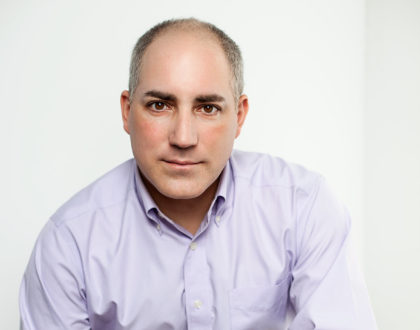Describing the Elephant: An Alum’s Reflections on LeadBoston

Colin Stokes, LeadBoston Class of 2018 and Director of Communications, Outreach, and Engagement at METCO
The gifts of being part of LeadBoston in 2018 were wide-ranging for me. I had the extraordinary chance to examine the city of Boston from multiple entry points, with under-the-hood glimpses into our school system, our hospitals, our prisons, our housing developments. I have a richer taste of Boston’s neighborhoods, a mental model of recent demographic and economic trends, and a Rolodex of leaders currently playing a role in its future.
The experience was intellectually demanding, trusting us to put the pieces together and find patterns. Like the parable of the blind people describing the parts of the elephant, no one sector told the whole story of Boston. But I began to see that we too have an elephant that we don’t want to talk about: the reality that there is no part of Boston in which being white or black is not a significant factor in the treatment you can expect. Experiences and outcomes split along the lines of skin color in every aspect of society today, in a way that would be hard to explain unless white supremacy were one of the basic ideologies that underlie it. The LeadBoston program makes that case, agonizingly, one day every month.
But as I came to understand this pervasive pattern, I looked for ways I could play a role in dismantling it. And I was stymied. For white, highly educated professionals like me, getting involved in an issue I care about is usually as easy as a few hours on Google and LinkedIn. There’s bound to be an ecosystem of organizations, initiatives, and agencies already working on a given problem, and with some networking and patience you can find a job at whatever pay grade (or volunteer commitment) suits your lifestyle.
But fighting racism doesn’t have a non-profit complex built around it, the way education or health care do. In fact, it’s quite the opposite. Institutions have often been founded to perpetuate racism, either actively or passively—to ensure that resources are funneled to the “deserving,” or to provide cover for exploitation.
YW Boston is an exception. And the LeadBoston program furthers YW’s mission by putting racial inequality at the center of every challenge the class examines. In a culture that normally does whatever it can to avoid looking at racial inequality, LeadBoston is an essential corrective.
And over the course of the year I became even more committed to keeping that lens on my life. In August, I took a new position at METCO, the historic school desegregation program, where 3,000 Boston students get up early every day to claim what white flight has tried to take from them. I’ve connected with dozens of suburban equity and anti-racism groups, taking classes and discussing books and films, digging into the hidden history of our region and asking questions we are often discouraged from asking.
And my leadership commitment is to make the path to joining this effort a bit clearer for the people behind me. I’m creating an email newsletter for aspiring anti-racists in Boston’s suburbs: a regular summary of events, resources, and actions for anyone who wants to meet other people ready to fight the issue directly. If you’d like to receive the first issue, email me at colinstoked@gmail.com.
Of many insights I gained in LeadBoston, the most essential one may be this: that significant change will only come when leaders break across the artificial boundaries of “sector” and “field”—the ones we use when we introduce ourselves to our classmates, and the ones LeadBoston uses on its syllabus—and instead name the entrenched boundaries of race and class that affect people’s lives every day. The promise of Boston will only be fulfilled when those barriers come down.

The LeadBoston Class of 2018
—
About LeadBoston
As the first YWCA in the nation, YW Boston has been at the forefront of advancing equity for over 150 years. LeadBoston is YW Boston’s cross-sector leadership development program that equips mid-to-senior level professionals with knowledge, skills, and networks to drive socially responsible change in their communities and organizations. Click to learn more about LeadBoston.
